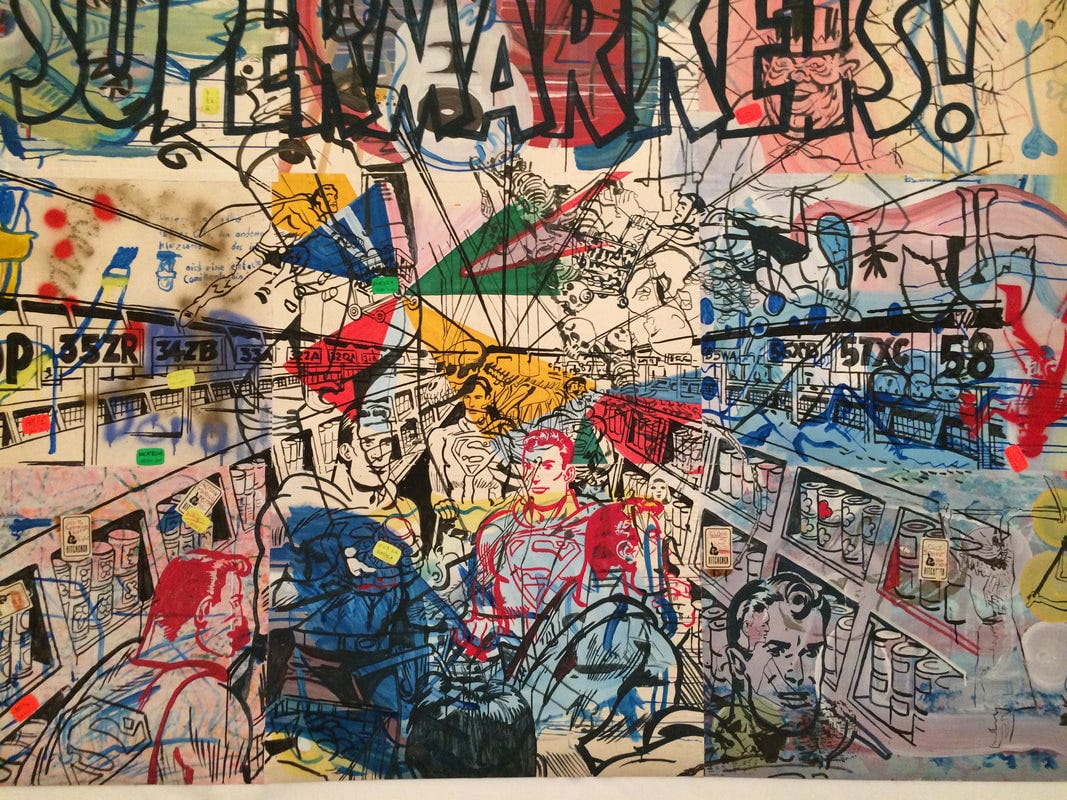When I returned to study in 2006, all my lecturers were senior staff with ongoing positions, teaching subjects in their own field, to cohorts of roughly 30-40 people. Each week we commuted to attend a room, took notes on paper, went to the library to get books and make photocopies. Our professors had tutors help with marking; this tutor was invariably that professor’s PhD candidate.
living together, somehow

Hello all, I've missed you and missed being in this space. Swallowed by parenting and teaching for nearly two months. Adult life.
There must be one among my dozen or so readers who may have noticed I haven’t posted since the first of this month. The good news is I’ve just emerged from three weeks of flatness. The bad news is that I have just undergone same. Why has this happened, I wonder? What was its onset or cause, and how did it (just as mysteriously) disappear?
In a text conversation with a friend on Friday, I wondered ‘aloud’: Also, Ukraine. I'm not *surprised*. But I'm still incredulous. Like. Really? What's to be gained? To which my friend replied, among other things: You are into psychoanalytics no? This question sent me on a weekend-long reflection, trying to reflect and ascertain the extent to which its true.

The second chapter of C&ID is arguably the most important for any social theory derived from Freud: or, at least, everybody since (who I’m especially interested in right now esp.) has been trying to parley with the set of answers he gives here. For me, it is a formidable set of responses, building as it does on Hobbesian assumptions about human nature, especially those which are the sources of our quarrels: competition, diffidence, glory.

Having summarised what clinical psychoanalytic experience can tell Rolland, and us, about the link between the feeling of the oceanic and adult ego, Freud then deals with the oceanic aspect, by giving an outline of the psychoanalytic account of development and dependency.
Civilisation and Its Discontents ( Das Unbehagen in der Kultur ), Chapter one part 1.2.1 How then does Freud respond to the normies, to the believers, and above all to Rolland’s oceanic feeling, as a man of science? What follows are, to me, two of the most concise and elegant descriptions of Freud’s own developed thought. As with the first few pages, he also manages to recruit ancient Rome, the dinosaurs, and quote Goethe on the way.

Civilisation and Its Discontents ( Das Unbehagen in der Kultur ), Chapter one, part 1.1 Freud begins by framing Civilisation… (C&ID) in terms of spiritual questions. He starts by tackling the responses that religion has given to the most basic existential questions posed by Gaugin in 1897: Where Do We Come From? What Are We? Where Are We Going?
There is no significant work of social theory that has not had to reckon with Civilisation and Its Discontents , from Adorno to Zizek. There are so many reasons, substantive and circumstantial.
This is A’s post, it captures the event much better than I did. https://www.crikey.com.au/2009/02/17/marysville-minute-by-minute-an-eyewitness-to-disaster/ This is what I wrote, which I was unhappy with at the time, and which the editor, in superb tragic irony, tried to turn into clickbait with the headline.